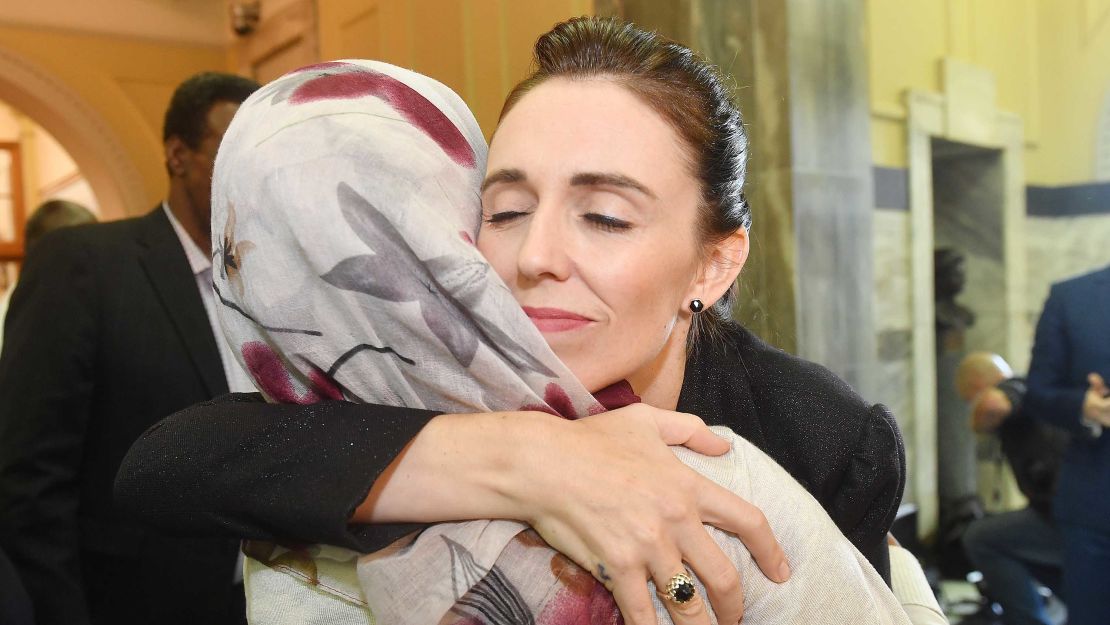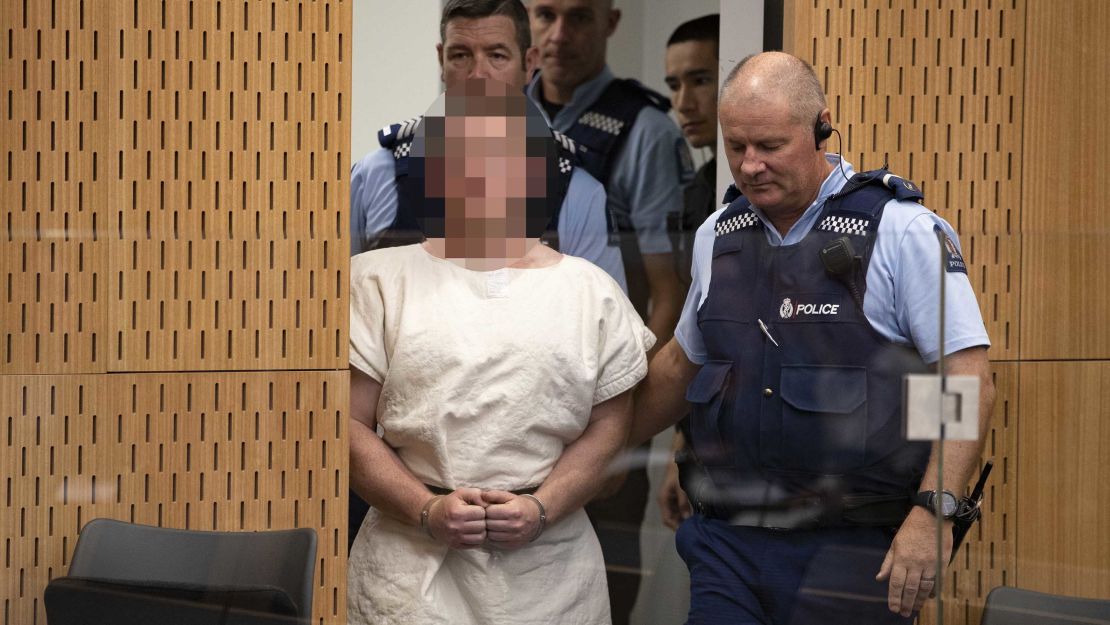The bodies of at least six victims of the Christchurch attack were returned to families Tuesday and another 32 people remain in hospital after a 28-year-old Australian gunman opened fire at two mosques last week.
New Zealand Police told CNN in a statement that they were working with families to return their loved ones’ bodies after a coroner had identified 12 victims.
Prime Minister Jacinda Ardern gave an emotional speech at her first address to Parliament since the terror attack, praising the “extraordinary courage” demonstrated by mosque worshipers and police during one of the country’s “darkest days.”
“There have rightly been questions around how this could have happened here. In a place that prides itself on being open, peaceful, diverse. And there is anger that it has happened here,” Ardern said Tuesday.

Fifty people were killed in Friday’s attack, while another 50 were injured, and 10 people remain in critical condition, health officials said Tuesday.
In her speech Tuesday, Ardern said she would do everything in her power to prevent the attacker from gaining attention.
“He sought many things from his act of terror, but one was notoriety. And that is why you will never hear me mention his name,” said Arden.
“Speak the names of those who were lost, rather than name of the man who took them. He may have sought notoriety, but we in New Zealand will give him nothing. Not even his name.”
Ardern said that the country’s authorities remain vigilant and on “high alert,” though there is no specific threat.
“We have seen in countries that know the horrors of terrorism more than us, there is a pattern of increased tension and actions over the weeks that follow that means we do need to ensure that vigilance is maintained,” she said.
In photos: Terror attack at New Zealand mosques
Her calls for unity and vigilance came amid a rare statement from ISIS spokesman, Abu Hassan al-Muhajir, accusing Ardern and other Western leaders of shedding “crocodile tears.”
Al-Muhajir called upon ISIS supporters to “take vengeance” in the aftermath of the attack in an almost 45-minute audio recording. It’s believed to be the first recording released by al-Muhajir in months.
New Zealand Members of Parliament gathered in the House on Tuesday to share condolences for the victims. They will meet again on Wednesday, the same day Ardern intends to return to Christchurch.
On Saturday, she visited members of Christchurch’s Muslim community wearing a hijab in what observers lauded as a meaningful gesture of compassion and respect.
A pledge to overhaul gun laws
On Tuesday Ardern hinted at major changes to come in light of the terror attack, especially when it comes to New Zealand’s gun laws.
The Prime Minister had previously announced that a government inquiry will look into the circumstances leading up to Friday’s attack.
The inquiry will investigate what agencies knew – or should have known – about the gunman’s access to weapons or any impediments into the sharing of information, she said.
Australian Brenton Harris Tarrant, 28, was charged with murder on Saturday. He is believed to be the only person responsible for the attacks.
Tarrant lived in New Zealand’s southern city of Dunedin, around 225 miles from Christchurch. Officials said he had no criminal history in New Zealand or Australia and had not drawn the attention of the intelligence community for extremist views.

Authorities said the assailant obtained the firearms used in the attack through legal means. Ardern and Deputy Prime Minister Winston Peters announced Monday evening that the cabinet has agreed to changes to New Zealand’s gun laws “in principle,” but the exact measures have not been revealed.
While acknowledging that “for a short period” the planned amendments might create uncertainty for some gun owners, Ardern said she believes “the vast majority” of New Zealand’s gun owners agree that change is needed.
Tech companies face increased scrutiny
Some of Ardern’s toughest rhetoric was reserved for social media and its ability to quickly disseminate “ideas and language of division and hate.”
“We cannot simply sit back and accept that these platforms just exist and that what is said on them is not the responsibility of the place where they are published. They are the publisher. Not just the postman. There cannot be a case of all profit no responsibility,” she said.
“This of course doesn’t take away the responsibility we too must show as a nation, to confront racism, violence and extremism. I don’t have all of the answers now, but we must collectively find them.”
Facebook has come under heavy scrutiny for its handling of the attack which the gunman live-streamed online. Facebook eventually took down the page and Twitter deleted the alleged perpetrator’s profile; but not before the video had spread like wildfire across social media.
Facebook Vice President and deputy general counsel Chris Sonderby said in a statement Tuesday that fewer than 200 people viewed the stream live, and none of them reported it. The video was viewed about 4,000 times before being removed, the statement read. Facebook also said in the first 24 hours after the attack, it removed about 1.5 million videos of the attack. More than 1.2 million of those videos were blocked during the upload process.
“We remain shocked and saddened by this tragedy and are committed to working with leaders in New Zealand, other governments, and across the technology industry to help counter hate speech and the threat of terrorism,” said Sonderby.
“We continue to work around the clock to prevent this content from appearing on our site, using a combination of technology and people.”
CNN’s Susannah Cullinane wrote from Auckland and Emanuella Grinberg from London. CNN’s Jo Shelley, Madeline Holcombe, Jack Guy and Bianca Britton contributed to this report.






































